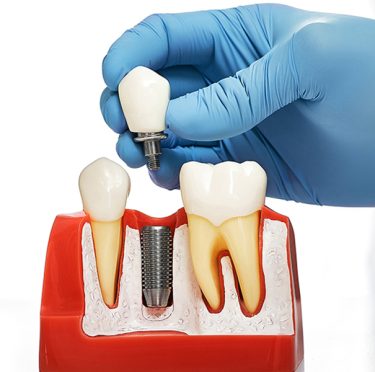8 Things You Should Know Before Denture Surgery in Wyckoff

Thinking about getting dentures in Wyckoff? Whether you’re replacing missing teeth or planning ahead, denture surgery is a big step. Understanding the process before you commit can make your experience smoother and less stressful. In this guide, we’ll walk you through eight important things to know before surgery so you’re informed, well-prepared, and confident in your next steps.
1. Know What the Surgery Involves
Denture surgery isn’t a one-day deal; it’s a process. First, you’ll have an initial evaluation where your dentist assesses your oral health. If extractions are needed, those come next, followed by a healing period before impressions for your dentures are taken. Temporary dentures may be provided so you’re not toothless during the wait.
Many people think of dentures as “pop them in and done,” but the truth is, your gums and jaw need time to adjust. From your first consultation to final fitting, the whole process can take several weeks or even months. Understanding this helps set realistic expectations.
2. Understand the Different Types of Dentures
Not all dentures are built the same. Your dentist will help you choose the best option based on your needs, but it’s good to be familiar with what’s out there.
For example, complete dentures are used when all teeth are missing, while partial dentures work with remaining natural teeth. Then there are immediate dentures that go in right after extractions, though they often need future adjustments. Some people opt for implant-supported dentures for a more secure fit, especially on the lower jaw.
Each type comes with its pros and trade-offs, so talk with your dentist near you about which is best suited for your situation and budget.
3. Get a Complete Dental Evaluation
Before diving into surgery, your dental team needs a clear picture of your oral health. This includes checking your gums, assessing any existing tooth decay or infections, and reviewing your medical history. Digital X-rays or scans help evaluate the condition of your jawbone and other structures.
This isn’t just a formality; it’s how your dentist tailors the treatment plan to your specific needs. If you’ve been searching for dentures near you, make sure the provider offers thorough pre-surgical evaluations and not just cookie-cutter solutions.
4. Check If You Have Enough Bone Support
Your jawbone is the foundation for dentures. Without enough support, they can slip, feel uncomfortable, or cause facial changes. Unfortunately, bone loss is common after teeth are removed, especially if it’s been years since the extractions.
During your exam, your dentist will decide if your bone is strong and dense enough to support traditional or implant-supported dentures. In some cases, bone grafting may be suggested to improve stability. This extra step may feel like a detour, but it’s an investment in the long-term comfort and functionality of your new teeth.
If you’re working with an experienced dentist in Wyckoff, NJ, we’ll walk you through this part and make sure you understand all your options.
5. Healing Time May Vary by Patient
Everyone heals differently. Your neighbor may have bounced back in two weeks, while your body might need a little more time. That’s completely normal.
Several factors affect healing time: age, general health, smoking habits, and the number of extractions performed. Some people feel okay in days; others may need a month or longer before they’re ready for the next step. It’s important to listen to your body and your dentist and not rush the healing process. The better you heal, the better your dentures will fit in the long run.
6. Expect Some Temporary Discomfort
Let’s be honest. Denture surgery isn’t painless but it’s not unbearable either. You might feel swelling, soreness in your gums, or even notice changes in your speech for a bit.
Don’t panic. This is part of your body adjusting. Many patients find that any discomfort fades in a few days with proper care. Warm salt water rinses, soft foods, and following medication instructions go a long way. If the pain feels off or lingers longer than expected, call your Wyckoff dentist—they’ll be there to help you through it.
7. Be Prepared to Adjust Your Diet
After surgery, your diet will need a little tweaking. Hard, crunchy, or sticky foods can irritate your healing gums or dislodge your dentures. Soft options like smoothies, scrambled eggs, mashed potatoes, and yogurt will be your best friends.
Gradually, you’ll be able to add back more solid foods, but it’s important not to rush. Eating slower, cutting food into smaller pieces, and avoiding extreme temperatures can help you stay comfortable. Good nutrition supports healing—so focus on meals that are gentle but rich in vitamins and minerals.
Also, drink lots of water. Hydration speeds up recovery and keeps your mouth clean and moist.
8. Follow All Aftercare Instructions Carefully
Your dentist will give you a post-op care guide—read it, follow it, and don’t skip any steps. This includes how to clean your dentures, when to wear them, and how often to return for follow-ups.
Good hygiene is non-negotiable. Clean dentures mean less risk of infection, irritation, or bad breath. Some habits, like sleeping with your dentures in or using harsh cleansers, can damage your oral tissues or the prosthetic itself.
Consistent aftercare ensures your dentures last longer and fit better. It’s not just about maintenance, it’s about your health and confidence.
Conclusion
Now that you know the key things to expect before denture surgery, you can make smart, confident decisions. Preparation is everything from choosing the right denture type to understanding how your body will heal. And the more you know, the smoother the process will be.
Book a one-on-one consultation with Elliot P. Frey, DMD, a provider trusted for honest guidance, excellent care, and personalized denture solutions.


